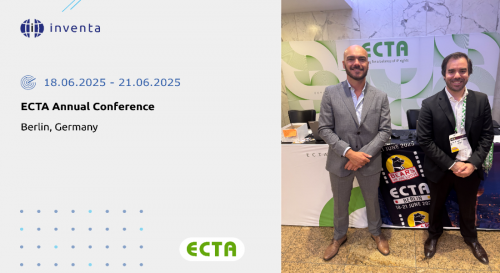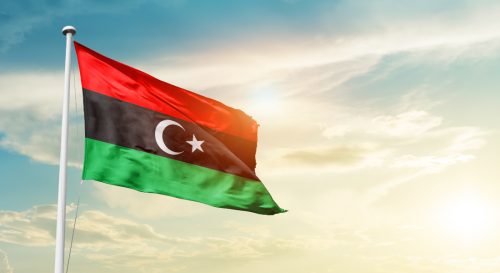
Angola: How to register a trademark
Due to increasing competition between companies in multiple countries, trademarks have become essential in commercial activities and represent a great value to the success of a business, as they distinguish its products or services from those of competitors.
In Angola, like in many other countries, trademarks are an important part of the trade dynamic and are protected by law, under the Intellectual Property Act, Law No. 3-92 of February 28, 1992.
However, understanding the trademark registration process and the laws and rules that govern it can be challenging. This article aims to provide an overview of the trademark protection process in Angola, including an analysis of the system's particularities and deadlines.
The Angolan Patent and Trademark Office (Angolan PTO) registration system does not have an electronic registration system, and some procedures and timeframes are not disclosed in the intellectual property law (IP Law). Due to these difficulties, it is highly advisable to seek the assistance of an attorney.
Registering a trademark in Angola can be a complex and time-consuming process, but it is necessary for protecting your intellectual property and establishing a strong brand presence in the country. It is important to work with experienced legal professionals who can guide you through the process and ensure that your trademark application meets all necessary requirements.
Submitting an application
To protect a trademark in Angola, the applicant, whether an individual or a company, must file a national application request before the office, which is subject to specific requirements. It is important to note that Angola follows a single-class system of registration, and applicants must classify the goods or services indicated on their applications under the Nice Classification.
Article 33 of the Angolan IP Law outlines the primary application requirements concerning trademarks, however, the legal demands of the documentation required, crucial for the acceptance of the application, are not disclosed in the IP Law.
To file an application in Angola, the required documents include the power of attorney, the applicant’s certificate of incorporation (a document that proves that the company is incorporated in the country where it was established) and the priority document (if applicable).
The PTO requires the filing of the originals, with certified Portuguese translation, notarised and legalised at the Angolan Consulate/Embassy of the applicant's country, or, if the country does not have an Angolan diplomatic mission, the documents need to be legalised in the consulate/embassy closest to the applicant's country.
Even though in Angola is possible to file an application without submitting all the necessary documentation upfront, this alternative implies additional costs for the interested party.
The legal deadline for submitting the power of attorney is 30 days from the application date, nevertheless, this deadline may be extended for additional periods of 30 or 60 days, subject to the payment of additional fees.
Additionally, it is important to mention that multiple extension requests can be made as long as there are valid reasons for the late submission of documents. However, it is important to be aware that there is a risk of the Angolan PTO denying an extension request before the legalisation proceeding is completed.
Registration process
After submitting the trademark application to the Angolan PTO, the registration process will formally begin, which consists of the following steps:
- Issuance of the official form(s) with the trademark number(s) (within four weeks from the filing date);
- Publication of the application(s) in the IP Bulletin for opposition purposes (approximately four to six months from the filing date);
- Opening of a 60-day period for the filing of oppositions by third parties who consider themselves to be adversely affected by the registration of the trademark(s);
- Formal and substantive examination by the PTO;
- Granting publication in the IP Bulletin;
- Issuance of the registration certificate (takes about a year after the granting publication).
The above-mentioned timeframes are based on the analysis of the current procedure of the local office, but they may vary due to the backlog of the PTO. It is also important to examine some of the specific details regarding the points previously discussed.
Delays to be expected
Regarding item number three, the opposition period in Angola may be extended for an additional 30 days. Also, the Angolan IP Office has been experiencing delays in delivering notifications.
As a result, it is difficult to predict the exact opposition period in Angola and, as a consequence, when the Angolan PTO will be able to initiate and conclude the formal and substantive examination (item number four).
The issuance of the registration certificate (item number six) will also be affected by the delays in the previous procedures.
The lack of modernisation becomes more evident during these steps, as the PTO's filing receipts and certificates are still issued on paper, and the only databases available are the IP Bulletins (issued at least once a month).
The estimated time frame for a trademark application until registration is 24 to 36 months, however, may take even longer.
Due to the absence of electronic updates, it is even more difficult to follow and know the status of the application.
The combination of these factors, along with the pandemic context experienced during the last three years and the change in certain legal provisions, has made it even more challenging to regularise the processes.
Registration fees
In 2020, the Angolan PTO changed the rules regarding the registration fees of trademarks. It started being paid alongside the application request, which forced the regularization of all the processes submitted before that year.
However, until the PTO issues a formal notification to pay those pending fees, it is not mandatory to do so.
Also, due to the long-time frame procedure, a new challenge arose: the payment of the renewal fees before the trademarks have been granted.
According to the IP Bulletin publications, there are over 50,000 trademark applications filed between 2000 and 2020 in Angola that have not been granted. Taking it into account, a significant number of them are already due for renewal (as trademarks in Angola must be renewed ten years after the application filing date).
Renewing a trademark before it has been granted can help ensure that there is no gap in protection for the trademark and may lock in the priority date for the application.
On the other hand, it may be a waste of resources if the application is ultimately refused, and the applicant may need to pay a new application fee if he wishes to reapply for the trademark.
In general, it is advisable to wait until a trademark has been granted before renewing it. Nevertheless, in Angola, it has been challenging to ensure that the registration process proceeds in this way.
Registering a trademark in Angola can be a complex and time-consuming process, but it is necessary for protecting your intellectual property and establishing a strong brand presence in the country.
It is important to work with experienced legal professionals who can guide you through the process and ensure that your trademark application meets all necessary requirements.
This is a co-published article, which was originally published in the World Intellectual Property Review (WIPR).
Lista de Territórios
Não existem resultados para a sua pesquisa.
- África
- África do Sul
- Angola
- Argélia
- Benin
- Botsuana
- Burkina Faso
- Burundi
- Cabo Verde
- Camarões
- Chade
- Comores
- Costa do Marfim
- Djibuti
- Egito
- Eritreia
- Eswatini (Suazilândia)
- Etiópia
- Gabão
- Gâmbia
- Gana
- Guiné
- Guiné-Bissau
- Guiné-Equatorial
- Lesoto
- Libéria
- Libia
- Madagáscar
- Maiote
- Malaui
- Máli
- Marrocos
- Maurícias
- Mauritânia
- Moçambique
- Namíbia
- Níger
- Nigéria
- Quénia
- República Centro-Africana
- República Democrática do Congo
- República do Congo
- Reunião
- Ruanda
- Saara Ocidental
- São Tomé e Principe
- Seicheles
- Senegal
- Serra Leoa
- Somália
- Sudão
- Sudão do Sul
- Tanzânia
- Togo
- Tunísia
- Uganda
- Zâmbia
- Zanzibar
- Zimbábue
- África (OAPI)
- África (ARIPO)
- Mais Territórios
- Macau
- Maldivas
- Portugal
- Timor Leste
- Marca da União Europeia (EUIPO)
- Marca Internacional (Sistema de Madrid)
- Patente Europeia (IEP)
- Tratado de Cooperação em matéria de Patentes (PCT)




